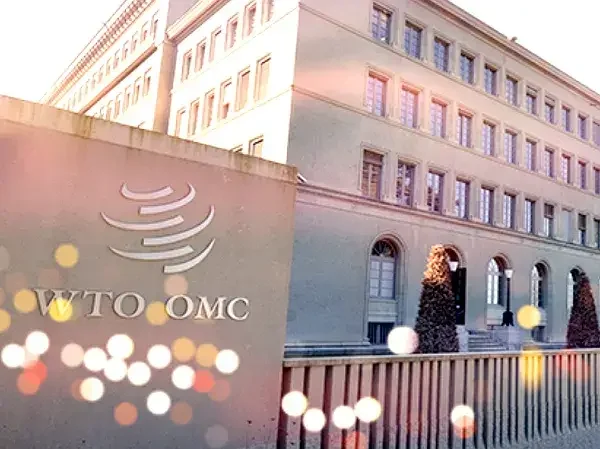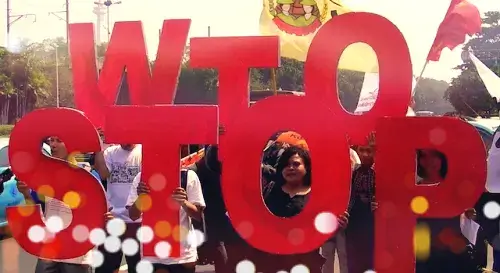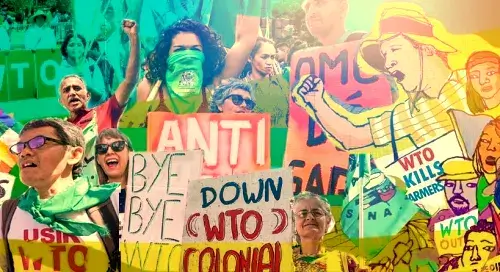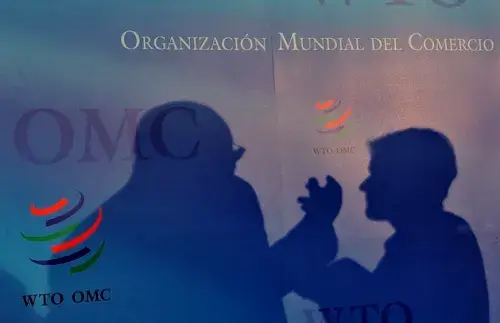Europe’s Quest. The World Trade Organization (WTO), once envisioned as the bedrock of an orderly and equitable global trading system, finds itself in an unprecedented state of dysfunction.
Its very foundation, built on the principle of rule-based trade, is crumbling under the weight of major economic powers like the United States and China, who increasingly appear unwilling to adhere to its established norms.
This alarming reality was a central topic of discussion among European Union leaders at the recent European Council meeting in June, as they grappled with how to adapt to this new and challenging international trade environment.
Europe’s Quest, the Paralysis of the WTO.
A System in Crisis.
The operational paralysis of the WTO has been evident since as far back as 2019. This was the year the United States initiated a concerted effort to block the appointment of new members to the Appellate Body, effectively rendering the dispute settlement system.
A cornerstone of the WTO’s effectiveness- inoperable.
As a direct consequence, critical trade negotiations, such as those aimed at eliminating harmful fisheries subsidies and reforming agricultural regulations, have stalled indefinitely.
This stalemate has left a significant void in global trade governance, creating uncertainty and undermining confidence in the multilateral system. The American critique of the WTO is not a recent phenomenon. Dissatisfaction with the organization predates even Donald Trump’s first presidency.
However, it was under Trump’s administration that the criticism reached its most strident pitch, with the former president famously labeling the WTO a “catastrophe for America” and even suggesting the U.S. should withdraw entirely.
The imposition of tariffs on allies, a controversial move, further exacerbated the chaos and highlighted the U.S.’s willingness to diverge from established trade practices.
A Bipartisan Shift in US Policy.
The Retreat from International Legal Obligations.
It has become abundantly clear that even within the Democratic party, there is a prevailing skepticism towards self-imposed restrictions in the name of international law.
This appears to be a bipartisan consensus, suggesting a fundamental shift in American foreign policy regarding international legal frameworks.
The undeniable fact is that, for the foreseeable future, the United States is unlikely to be committed to upholding international laws and norms in the realm of trade.
This recalibration of American priorities presents a significant challenge for the global trading system, particularly for those who advocate for a rules-based order.
Europe’s Dilemma.
Forging a New Path Forward.
This American shift has directly prompted a critical question for Europe: should Europeans consider establishing a new type of trade organization, one that could gradually replace the now-defunct functions of the WTO?
The sentiment within Europe is that other nations are acutely aware of the WTO’s ineffectiveness.
The current situation demands a proactive approach, one that acknowledges the reality of a global trade landscape in flux and seeks to build new mechanisms for cooperation and dispute resolution.
European Commission President Ursula von der Leyen acknowledged that she presented various options to member state leaders to address these pressing issues.
Among the most appealing solutions appears to be accession to the Comprehensive and Progressive Agreement for Trans-Pacific Partnership (CPTPP).
The CPTPP.
A Potential Blueprint for Europe’s Future Trade Strategy.
The CPTPP is a regional trade pact encompassing 11 Pacific Rim nations and, more recently, the United Kingdom. Its established framework and existing mechanisms offer a compelling model for Europe’s future trade engagements.
One significant area of collaboration with CPTPP member states could involve the establishment of a robust dispute resolution system. This is particularly crucial given that the U.S.’s actions have effectively paralyzed this essential function within the WTO.
By partnering with the CPTPP, Europe could contribute to and benefit from a functioning mechanism for resolving trade disputes, thereby fostering greater stability and predictability in international commerce.
From Brussels’ perspective, such cooperation would also serve as a powerful political signal. It would demonstrate that a substantial number of countries continue to support open and rules-based global trade.
This collective endorsement of multilateralism would be a strong counter-narrative to the rising tide of protectionism and unilateralism.
This move also sends a clear message from Europe to East Asian countries, which are often caught between the geopolitical and economic pressures exerted by the U.S. and China.
The message is one of solidarity and shared commitment: “Together, we can move forward in a legal and internationally rules-based order.” However, the practical implementation of such a strategy raises numerous questions that still need to be addressed.
Challenges and Opportunities for Europe.
One notable challenge is that the European Union typically prefers to negotiate its own agreements. The CPTPP is an agreement in which the EU was essentially not involved in its founding, meaning it would have to accept the rules already enshrined within the pact.
Furthermore, the European Union has already concluded trade agreements with quite a few of these CPTPP member states individually. This overlap would require careful consideration to ensure coherence and avoid unnecessary duplication.
Despite these challenges, the plan to cooperate with Pacific Rim countries is squarely aimed at overcoming some of the difficulties and inadequate conduct observed within the World Trade Organization.
This strategic alignment represents a pragmatic approach to a deteriorating global trade environment, offering a pathway for Europe to champion its values of open markets and rules-based trade in a rapidly changing world.
By exploring alternatives and forging new alliances, Europe seeks to safeguard its economic interests and promote a more stable and predictable international trading system.
Have a Great Day Europe!





